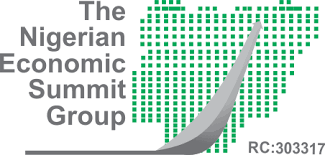
NESG Advocates for Tax Compliance in Nigeria
The Board member of the Nigerian Economic Summit Group (NESG), Mr. Frank Aigbogun, has called for a paradigm shift in the country’s tax procedures and encouraged political leaders to demonstrate leadership by supporting a cultural change through tax compliance.
Aigbogun who advocated this at a pre- 28th Nigerian Economic Summit (NES28) event with the theme “Critical Tax Reforms for Shared Prosperity,” noted that Nigeria suffers from low tax compliance and that the country’s tax to Gross Domestic Product(GDP) ratio stands at 6 percent, which is significantly lower than the average across African countries, which stands at 18 percent.
He pointed out that taxes should promote economic growth, especially for Micro Small, and Medium Enterprises(MSMEs) that contribute a huge part of the GDP to the country.
Also Read: In Six Months, Nigeria Attracts $1.47bn Foreign Inflows – CBN
He noted that taxes could help to finance public education, and healthcare, offering better chances for people to improve their economic status as well as become the financial backbone of social security, protecting the poor.
Aigbogun however said policy weaknesses, lack of reforms, and public understanding prevent taxes from playing a significant role in development.
The NESG Board member observed that tax revenue is critical for government to finance its activities as well as financial development objectives for shared prosperity and promote the efficiency of government and the economy.
He further stated that the introduction of a yearly Finance Act has supported tax legislation and encouraged policy implementation, which can be strengthened by addressing issues related to tax compliance, taxation, and support to households and enterprises.
The thematic lead, NESG Fiscal Policy & Planning Thematic Group, Mr. Taiwo Oyedele, in his presentation said the Nigerian economy is facing several challenges, including reduced foreign remittances, heightened insecurity, multiple exchange rate windows, low tax to GDP ratio, and a high debt service cost to GDP ratio.
He noted that some of the taxation issues include the introduction of new taxes on corporates, Naira devaluation, increased inflation at 18.6 %, unemployment at 33%, poor policy coordination, petroleum subsidy, and geopolitical tension/crisis.
Oyedele stated that the economy is affected by debt/taxes, politics and policies, geopolitical crises, insecurity, and petroleum subsidies.
“Nigeria’s fiscal landscape has been bolstered by the national tax policy 2019, resulting in annual changes through the Finance Act.
He added, “Improved coordination at subnational levels, improved capacity for revenue mobilization, and the funding of the Federal allocation committee from taxes. Nigeria has a small tax base that continues to face structural problems. We need to focus on tax harmonization that is broad-based and properly defined”.
